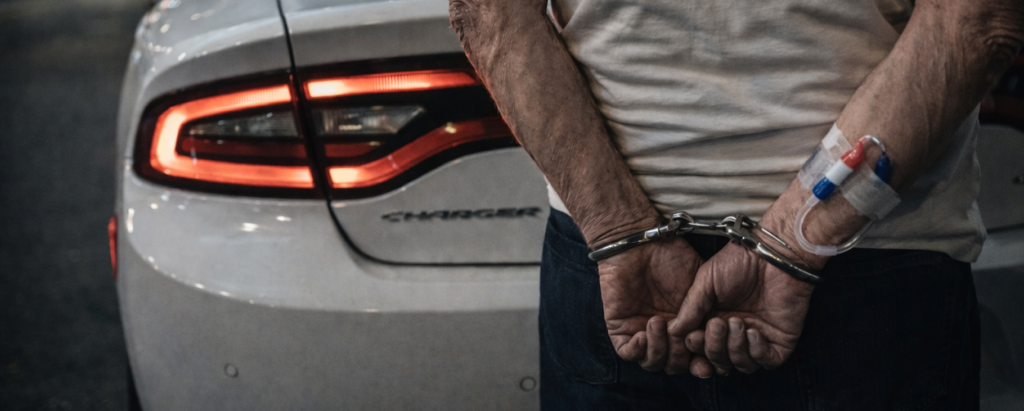United States v. August, 2025 WL 1335833 (5th Cir. 2025)
On May 14, 2022, law enforcement officers in Lake Charles, Louisiana, responded to a call about gunshots on North Lyons Street. Officers Bernat and Rainwater approached Kirk August’s home, finding him in a backyard filled with junk. As they walked around to speak with him, the officers became concerned the over-cluttered area provided August ample cover to hide a weapon. Meanwhile, a third officer, Officer Baccigalopi, spoke to a neighbor, who told him she had seen August firing a handgun. It’s worth noting that a year earlier, Officer Baccigalopi had helped execute a search warrant at August’s home, locating a handgun inside. Baccigalopi notified his colleagues August might have a gun.
After receiving this warning, Bernat and Rainwater ordered August to walk backward toward a fence with his hands on his head. August claimed he had been taking a bath before officers arrived and that his sister had the only keys to the house. The officers frisked August and did not find a weapon on his person. August remained near the fence this entire time. Bernat and Rainwater entered the backyard and conducted a protective sweep. Officer Bernat later testified they entered the backyard “mostly” for safety reasons: “There was a lot of junk behind the house. So, if he did have a firearm within close proximity, I’d rather be on that side.” During the officers’ quick visual inspection of the backyard, they saw a sign with bullet holes as well as shell casings on the ground.
Timely legal analysis on law enforcement-related cases: SUBSCRIBE NOW!
The back door to the home was blocked by stacked mattresses. The only other exterior door was locked. Using keys retrieved from a car in the driveway, Officers Bernat and Rainwater then conducted a protective sweep of the home and found methamphetamine and ammunition. A search warrant was later obtained, leading to the discovery of firearms and more ammunition in the home.
August was charged with possession of a firearm by a convicted felon. He asked the trial court to suppress the evidence obtained from the searches. The trial judge declined his motion. August pled guilty but reserved the right to appeal the denial of his motion to suppress, which he later did.
The 5th Circuit panel began its decision by reviewing the elements of the protective sweep doctrine. According to the ruling, officers “may conduct, without a warrant, ‘a quick and limited search of premises for the safety of the agents and others present at the scene.’” The panel went on to state, “A protective sweep is lawful if:
(1) the government agents have a legitimate law enforcement purpose for being in the house [or curtilage]; (2) the sweep is supported by a reasonable, articulable suspicion that the area to be swept harbors an individual posing a danger to those on the scene; (3) the sweep is no more than a cursory inspection of those spaces where a person may be found; and (4) the sweep lasts no longer than is necessary to dispel the reasonable suspicion of danger and lasts no longer than the police are justified in remaining on the premises.”
The court held the protective sweeps of August’s backyard and home were each justified by exigent circumstances because the officers had reasonable suspicion of danger. In its decision, the panel stated the officers had abundant reason to disbelieve August’s story about taking a bath and not having a gun on the premises. The presence of a convertible in the driveway — top down, driver door ajar, keys still in the ignition and music playing from the radio — suggested the presence of a third party and/or a recent visitor’s arrival in light of August’s claim he had just been taking a bath: “The chaos, contradictions, and incredible story that August attempted to sell the officers, when considered together and in the light most favorable to the government, made it completely reasonable for police to fear that someone — or something — else hiding in August’s backyard posed a serious threat to their safety.”
The court noted multiple valid justifications for the protective sweeps of both the backyard and house:
- Two or more neighbors had heard the sound of gunfire, and one neighbor reported seeing someone firing a gun in August’s backyard.
- The doors to the house were locked and/or barricaded.
- Spent shell casings were found littering the ground.
- The car in the driveway looked as if it had just arrived.
“The search warrant was supported by probable cause not tied to any potentially tainted evidence obtained in the protective sweeps.”
Moreover, the court noted “August had little to no credibility.” Any other explanation (such as someone driving up and joining August in the tub or gazing at him as he bathed) just didn’t wash.
The court also held the independent source doctrine — in that the search warrant was supported by probable cause not tied to any potentially tainted evidence obtained in the protective sweeps — also applied in this case. Independent of the officers’ observations, the neighbors saw and heard someone firing a gun in August’s backyard, and that was enough.
- Blog Articles



